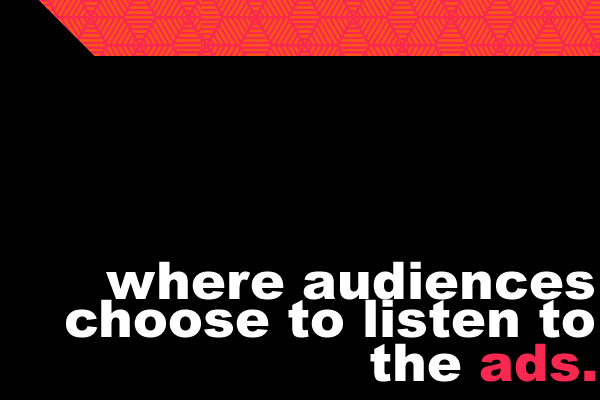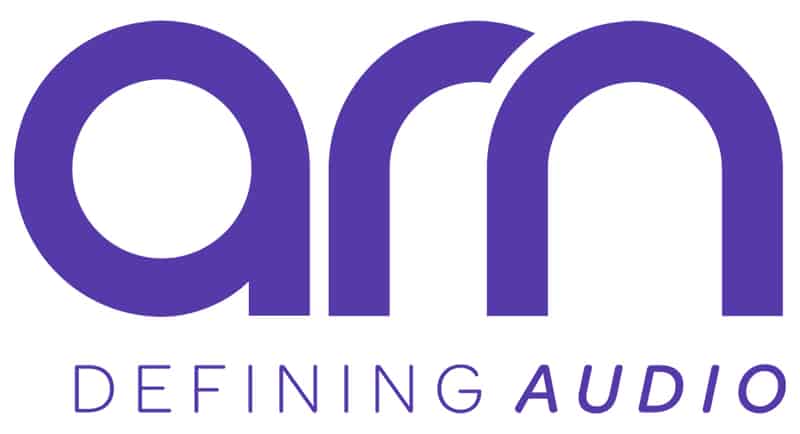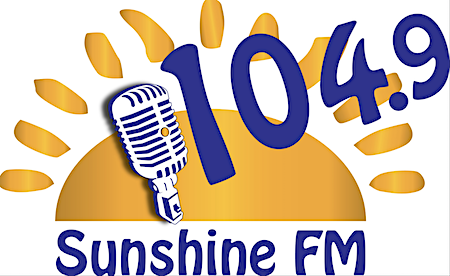Podcast Pioneers: Where audiences choose to listen to the ads

When was the last time you were so engrossed with an advertisement that you rewound to hear it again? No? Never? Not even once?
There’s a revolution taking place and the traditional media giants are yet to realise it. Podcasts are transforming advertising. They’ve become pioneers in creating a different commercial model where audiences are choosing to not skip the ads, but in some cases rewind to hear them again.

Commercial departments have always had a rocky relationship with programming teams at TV and radio networks. Despite providing the primary source of income, it’s the one point in the schedule that programmers and content directors don’t care to control. Which doesn’t make sense when it represents THE moment audiences switch off.
What would happen if programmers focused their attention on the ads? Treating them the same way they treat their shows, with careful crafting to ensure they too entertain. Could this help to reduce the rate of audience opt-out?
Marketers are acutely aware of the need to do things differently. Many are willing to try something different versus being another ‘me too’ in a block of 30-second commercials. It’s clear something needs to give, and podcasters have found a way to create commercials that are just as entertaining as what surrounds them. All the old world needs to do is listen.
Alex Blumberg (formerly of This American Life and Planet Money) recognised this when setting up his own podcasting company Gimlet Media last year, which was named one of ‘The World’s Top 10 Most Innovative Companies of 2015 In Media’. Gimlet has launched four podcasts (with more in development) setting the bar for quality, highly produced podcasts that define the medium. This extends to their advertising. They realised that to be successful they couldn’t replicate the broken traditional model. They needed a different approach.
And they’ve cracked the formula, creating ads that listeners actually choose to engage with and are just as compelling as the rest of the show. Gimlet uses a storytelling approach that sees their talent interviewing the advertiser’s employees or customers, not to endorse the product but to authentically convey the key message. They’ve even employed a Creative Director, Nazanin Rafsanjanito oversee their commercial output. Her advantage is in her background. As an ex-journalist and producer, she’s hyper-focused on making commercials as engaging as the content on either side.
For example, the below break for Ford and Audible from Gimlet’s StartUp podcast, shows what’s possible when using producers and journalists to create the commercials; authentic stories by real people, exceptionally crafted.
Agencies and media alike have been making interesting ads for years. Commercials fronted by talent to add credibility is equally nothing new. Where this shifts gear is in telling stories that help provide a deeper connection. In this case, it’s Ford candidly sharing how they obsessively go about understanding the end user. For Audible, hearing from a customer as to how it whisks them away on their daily commute, genuinely demonstrates the product benefit and it’s believable. The brands have instilled trust and freedom in the creators, and it doesn’t come neatly packaged in a 30-second bow.
A little over a year ago, Serial, a true crime story told in tantalizing weekly instalments, captivated listeners with over 100 million downloads. More surprisingly, so did its advertising with sponsor Mail Kimp Chimp riding its coat tails to gain cult status as it accrued memes, trending hashtags, t-shirts… even a remix. Its success was likely accidental, leveraging audiences’ fever pitch craving as it marked the start of each instalment. With Series 2 now live it will be remiss of them not to take it up a notch.

With 46 million Americans listening to podcasts each month (according to Edison research), podcasters are now evolving the commercial offering even further. Some have taken to developing entire shows that place the advertiser at the center like U.S. based Panolpy who recently co-produced a fictional sci-fi podcast ‘The Message’with a division of GE, amassing 1 million+ listeners.
So what can be gleaned from the rising popularity of the podcast? As pioneers of a new commercial frontier, they’ve proven their strength in breaking the mold, unencumbered to evolve the proposition with speed. Clients are paying a premium to try the new direction and audiences are opting in for the ride.
Andrew Sidwell, Macquarie Media Head of Client Content Creation is one of the rare few consuming and locally trialing this style of content using journalists. He’s looking to capitalise on the marketers brave enough to experiment, without being restricted by a 30-second clock. “The challenge clients initially struggle with is letting go of the need for their brand to be the star.”
With many marketers willing to try something different and audiences opting out when the wall of ads hits, something needs to change. If programmers can be afforded the freedom and focus to reshape the commercial output, perhaps the traditional networks too can share the renaissance currently being enjoyed by podcasters.
Corey Layton is the Group Ideas Director for Ensemble, a non-traditional creative agency creating Opt-In ideas… communications, experiences and products that people actually choose to engage with.


